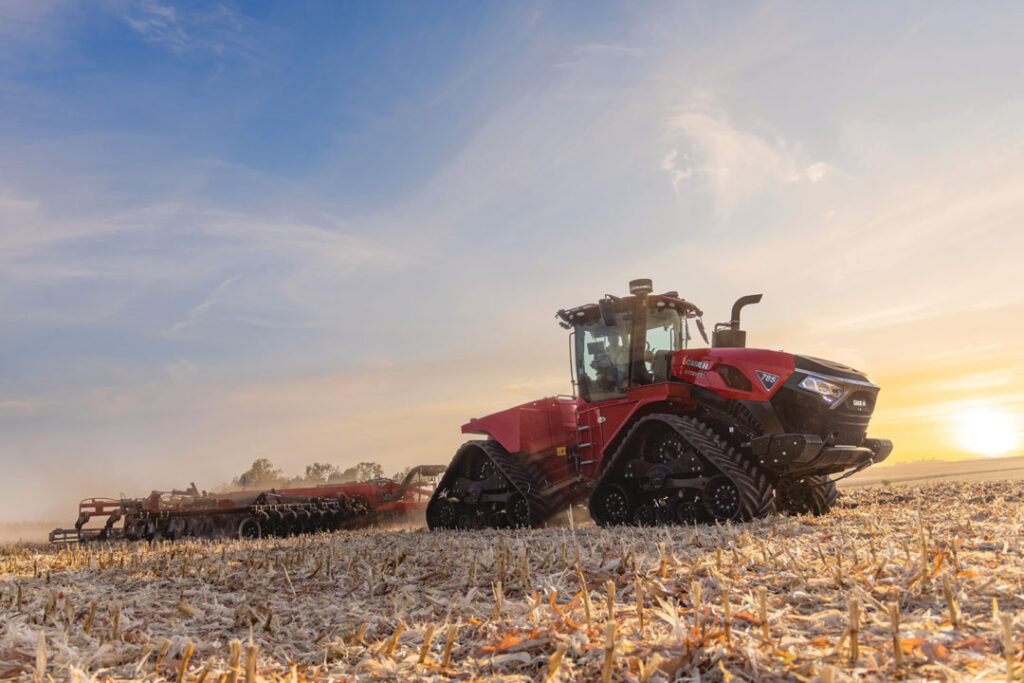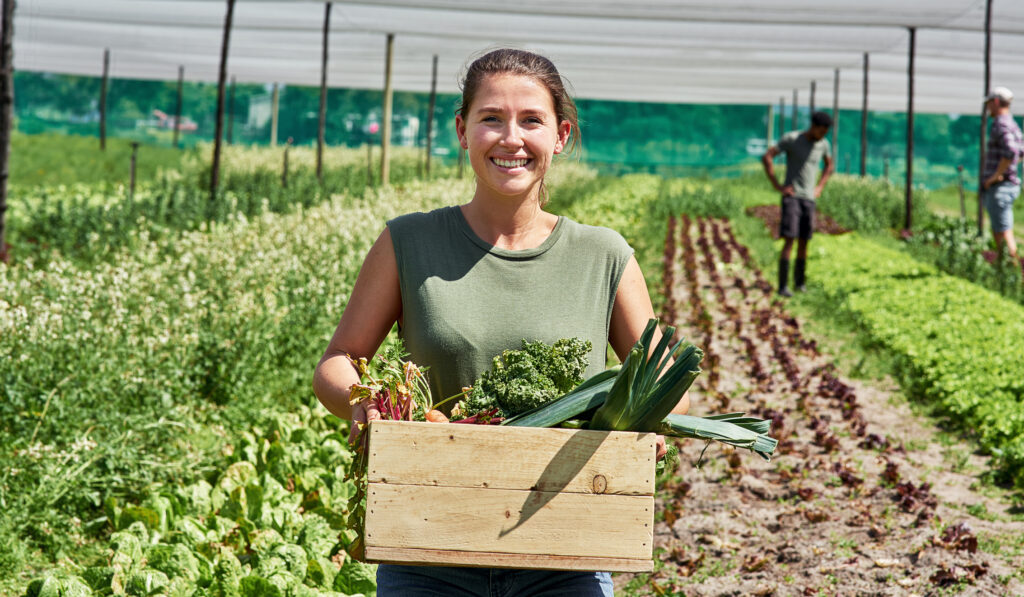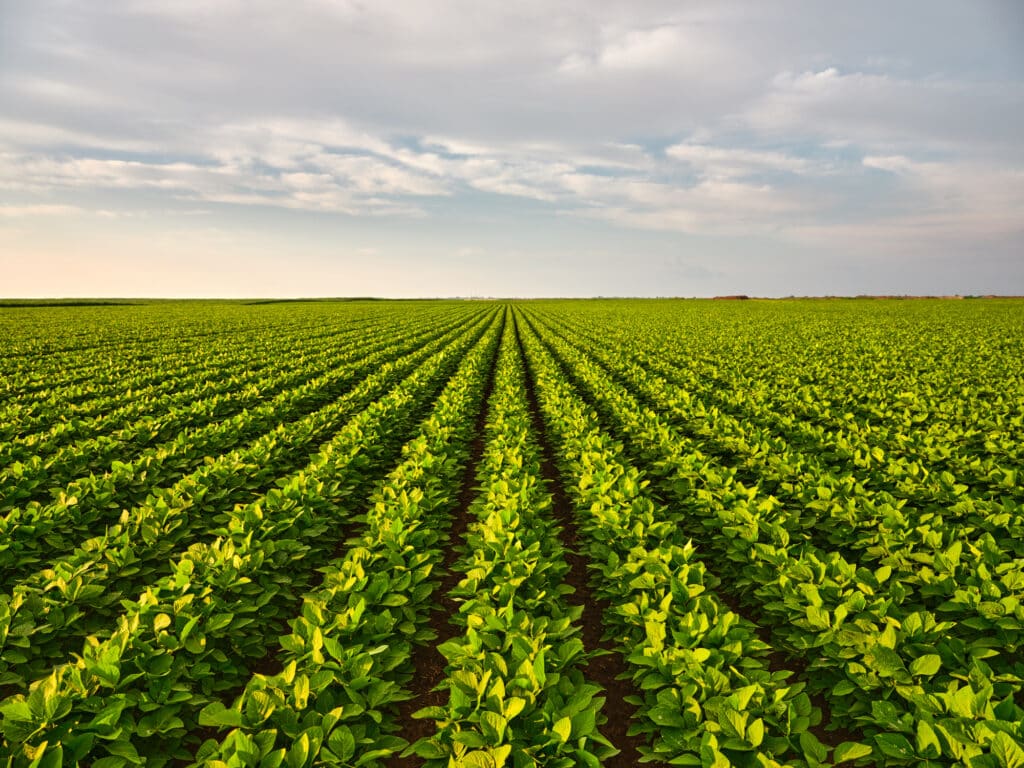Meet Steve Bruere

The issue: Ag land values
The majority of Iowa farmland is owned by people who could retire today, and retire very wealthy thanks to the escalation in land and crop prices in recent years. But that valuable dirt creates another set of issues, the main being that newcomers have trouble breaking into production farming. The costs are high. Steve Bruere knows land, and he sees change coming to the farm fields.
Give Steve Bruere some time to kill, and he’s likely to spend it in a combine, showing his three children the lay of Iowa dirt that plays a key role in his business decisions.
It is a countryside that is rapidly changing, as Bruere will tell you.
Since 2003, Bruere has led Peoples Co. from a four-person, four-property real estate company in Indianola to a firm that is licensed to sell land in six states. Peoples Co. is much more than a real estate company these days.
For that, you can thank Bruere’s fascination with dirt that has made millionares out of many and presents huge risks and financial challenges for people who want to turn a profit from it. Bruere believes ownership of farmland will go through a transition that sees independent investors owning much of it and providing the capital needed to produce a crop from it.
Peoples Co. started out as the property management division of the former Peoples Bank, an Indianola institution that was founded in 1919 and focused much of its lending on the farms that surrounded the seat of Warren County government.
By 1977, the bank was going through a series of acquisitions, and the decision was made to spin off its property management business. Peoples Co. sold and managed farms.
Those might have been good days, but they were slow ones judging by what has happened since Bruere joined the company in 2003 and was named president.
Revenues have increased 39 percent a year, every year, since he took over. Peoples Co. still sells property, but it also manages farms, runs an auction business, sponsors a land expo that draws an international audience, dabbles in residential and commercial development, even manages conservation lands.
When he joined Peoples Co., Bruere knew few of the developers who were paying premium prices for farmland to build malls and homes.
“I was on the outside looking in,” Bruere recalled. “I felt as though the big developers were unapproachable.”
Still, he wanted the company to be in the game. It was difficult to make a bad decision in the land business between 2003 and 2007.
But when developers began crashing along with the housing and real estate markets in 2008, Bruere decided to expand the company. He contacted every banker in Greater Des Moines and offered his company’s services managing and disposing of properties the banks were taking over after loans went bad.
“I realized the Peoples Co. wouldn’t be around long if we focused solely on land,” he said.
The company also launched an auction service and expanded its farm management operations to include special divisions for recreational land as well as conservation properties, where owners were less interested in turning a profit from the holdings than in re-establishing native plants and grasses.
In recent years, Bruere has taken a keen interest in properties that might one day serve as data centers.
Still, it is farmland that occupies his thoughts.
In 2008, Bruere launched a one-day event called the Land Expo that draws bankers, developers, farmers, land brokers, economists and investment managers to Greater Des Moines. They come from around the globe. This year, Jim Rogers, an investment specialist who lives in Singapore, will speak. He accepted the invitation partly out of curiosity about the buzz generated by Iowa farmland.
“The most important contributor to the company’s success was the launch in 2008 of a land expo. There was nothing like it in Iowa at the time,” Bruere said.
For Bruere, the issues surrounding Iowa farmland are complicated.
He points out that 70 percent of that land is owned by people age 65 and older. Land prices, including the cost to rent farmland, and the cost of equipment – a combine alone can cost $500,000 or more — are circumstances that will make it difficult for young people to become farmers. It presents big questions for children who inherit farmland that they might not be able to afford.
“What we see coming down the pipeline is this enormous transfer of wealth,” he said.
Bruere estimates that with Iowa farmland selling at an average price of $10,400 an acre, its total value is about $215 billion.
“There is a huge need for capital,” he said, and Peoples Co. is looking for the private investors to supply that capital.
“What we’re doing is really popular with some people, and really unpopular with others,” he said.
Bruere estimates that every half mile of farmland represents “a million bucks on either side of the road. And most of it is paid for,” Bruere said.
Bruere is looking to the future and learning from the past. The collapse in development left a glut of land that was taken out of agricultural production and is being placed back in the game, at least for the moment.
“You can buy future development land at farmland prices, and farmland is appreciating,” he said.
Q & A
Who inspires you?
I’m inspired by successful people. I enjoy listening to and learning from other entrepreneurs and business people and applying their life lessons to my business.
What do you do in your spare time?
I enjoy looking at land for fun. Most weekends, you can find me driving around with my wife and kids looking at farms or development land. When I’m not working, I like to travel.
Why the fascination with dirt?
Dirt is the most amazing asset in the world. The wealth that land has created for generations is amazing. I enjoy seeing what land can produce, and I’m fascinated with land development. Every real estate project starts with the land, from ethanol plants to wind farms to residential development. I can’t think of another asset class that has more opportunity than land.
What was your first job?
I grew up helping on my family farm and our family seed business. On the side, I grew pumpkins and sweet corn to subsidize my income.











